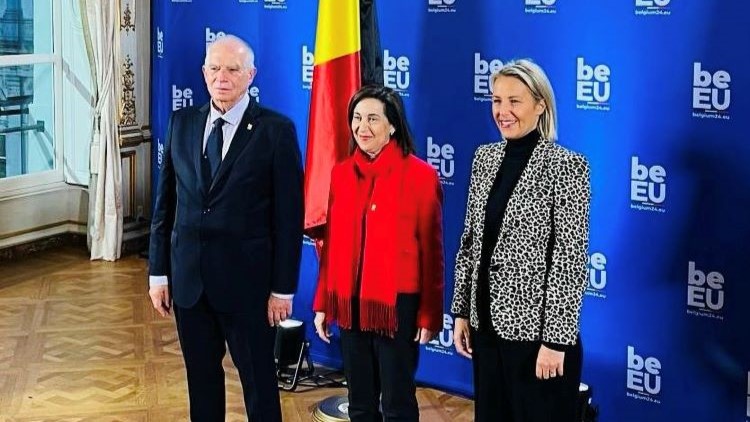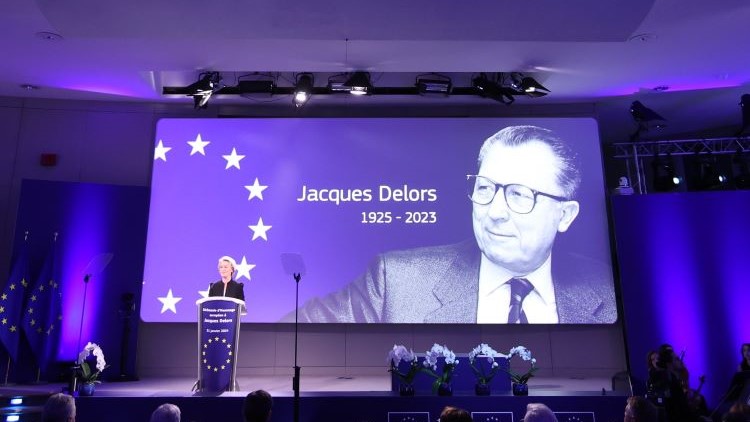Eduardo González
The Minister of Defense, Margarita Robles, participated yesterday in Brussels in the Informal Meeting of the Defense Ministers of the European Union, in which she highlighted “the important contribution of the Spanish industry through direct contracts to support the Ukrainian Armed Forces”.
The first session of the meeting – chaired by the High Representative for Foreign and Security Policy of the EU, Josep Borrell, and the Belgian Minister of Defense, Ludivine Dedonder, within the framework of the Belgian Presidency of the Council of the EU – addressed the support of Ukraine and European initiatives to deliver ammunition to this country. The session was preceded by a video conference by Ukrainian Defense Minister Rustem Umerov, who briefed his European colleagues on the latest developments in the conflict and the situation on the ground.
During her speech, Margarita Robles explained the military and training support, training and humanitarian nature of the Spanish Armed Forces to the Ukrainian forces and joined the different initiatives underway to expand the European Peace Support Fund, whose contributions 6.7 billion euros in military material constitute “the best instrument to help Ukraine.” Likewise, she addressed the constitution of a new Fund to support Ukraine.
Likewise, the minister highlighted “the important contribution of the Spanish defense industry” “through direct contracts to support the Ukrainian Armed Forces” with the supply, for example, of long-range artillery ammunition. In this regard, Robles assured that “Spain will continue to support Ukraine using all means to make this support as agile and effective as possible,” and recalled that, during the almost two years of conflict, “the Spanish Ministry of Defense has provided means battleships, air defense systems, artillery weapons and ammunition and systems for the defense of sea routes.”
Furthermore, she continued, “Spain has made a continuous contribution of vehicles, electrical generators, medical and protective equipment, including a Field Hospital, and fuel to sustain the Ukrainian effort, to which we must add the 3,500 Ukrainian soldiers trained in the EUMAM Mission and the support provided to displaced people, wounded with complex amputations or, recently, to the families of those killed in combat sheltered in our military rest residences.”
European Defense Industrial Strategy
During the second session, focused on “Defense preparation”, Robles thanked the effort that the Commission, the External Action Service and the European Defense Agency are carrying out to prepare the European Defense Industrial Strategy, which “will be a key instrument to achieve the Technological and Industrial Defense Base that Europe needs.”
“It will be an opportunity to explain to our citizens the importance of Defense and its relationship and dependence on an industry with resources, talent, innovation and potential to create highly qualified jobs in Europe,” said the minister. This strategy, she added, “will allow us to effectively coordinate our demand, strengthen supply chains, support the competitiveness of the Defense industry and promote innovation, strengthening the Union in its goal of achieving the objectives of the Strategic Compass.”
The meeting concluded with a working lunch dedicated to current issues in security and defense, in which the ministers addressed the situation on the African continent, with special attention to the Sahel. In this regard, the minister assured that “Spain will maintain its contribution as long as local governments do not request our immediate departure and the European Union decides to remain, since, for us, leaving the Sahel would simply lead their societies to a much more difficult situation in hands of predatory actors.”
On the sidelines of the Council, Robles met with her Lithuanian counterpart, Arvydas Anusauskas, to discuss matters related to the Demining Coalition within the framework of the Contact Group for Ukraine. Likewise, she held a meeting with the deputy secretary general of the United Nations Department of Peace Operations, Jean-Pierre Lacroix, with whom she addressed the crisis in the Middle East and the contribution of the Spanish Armed Forces to the mission in Lebanon (UNIFIL).







